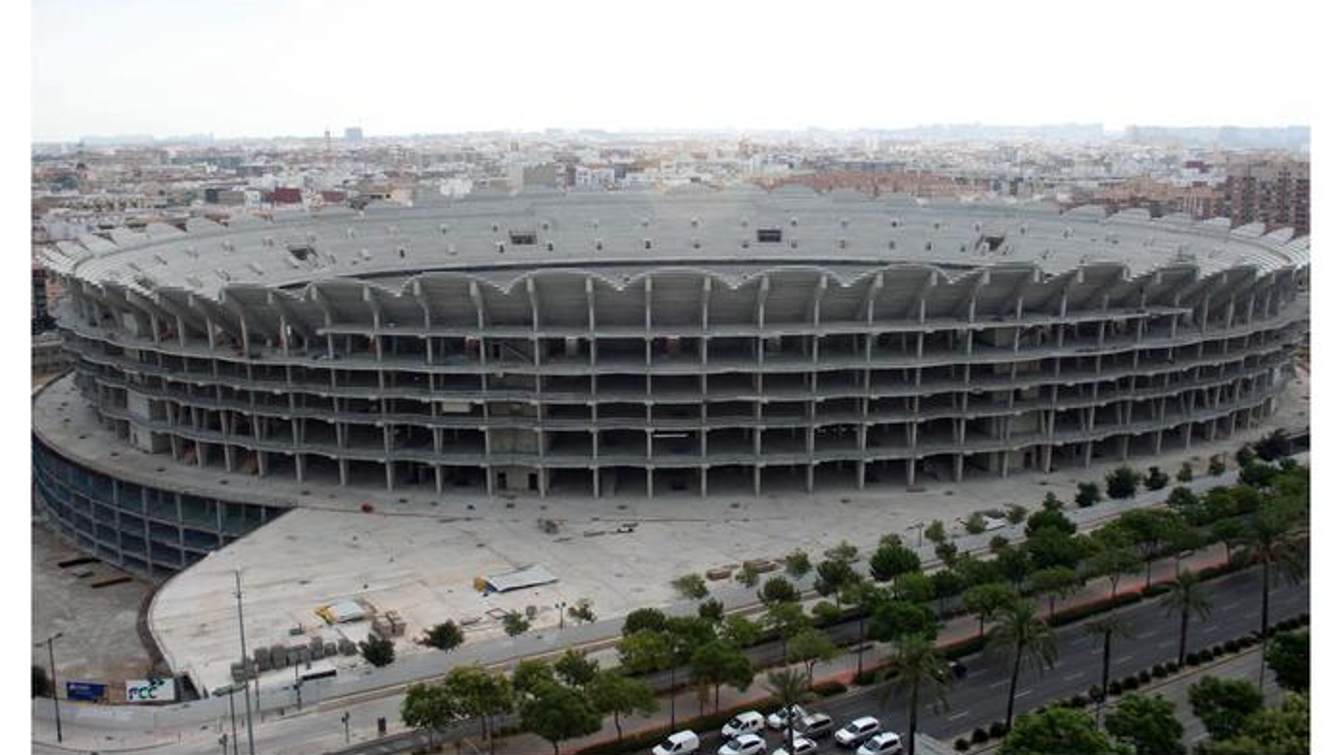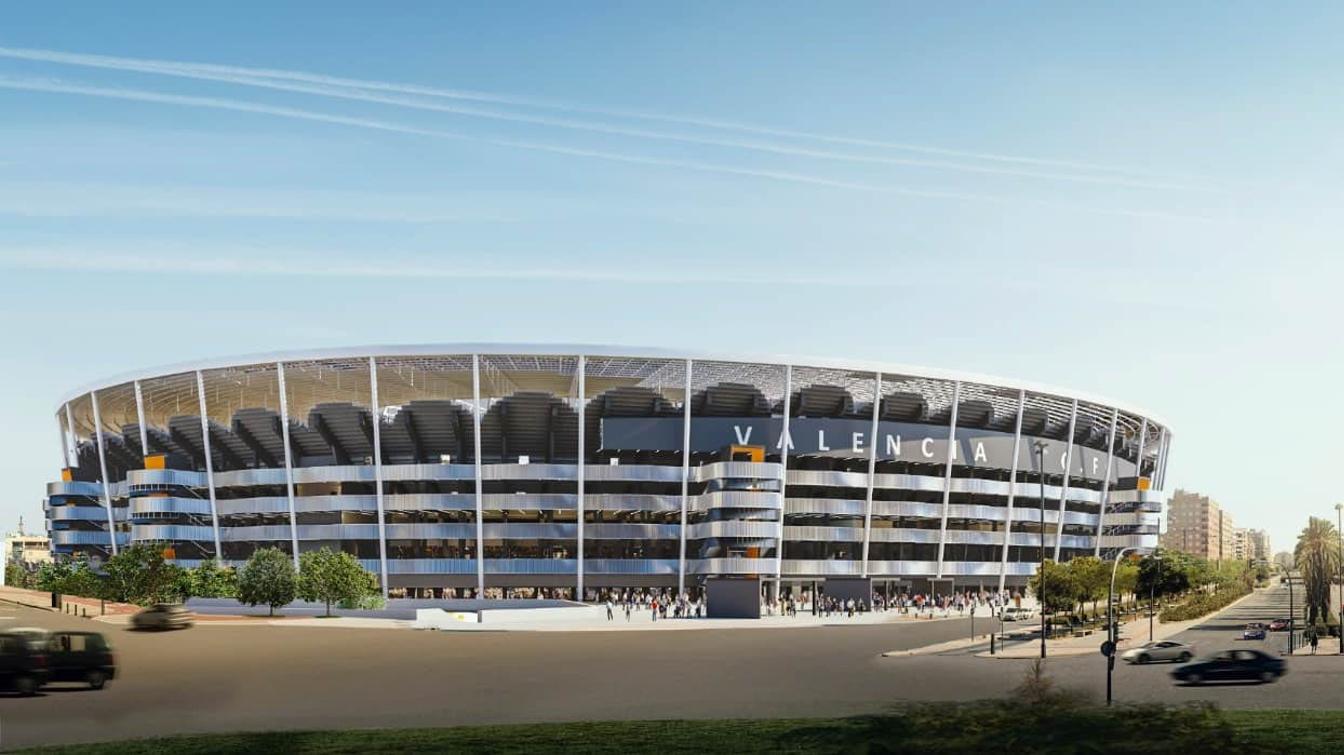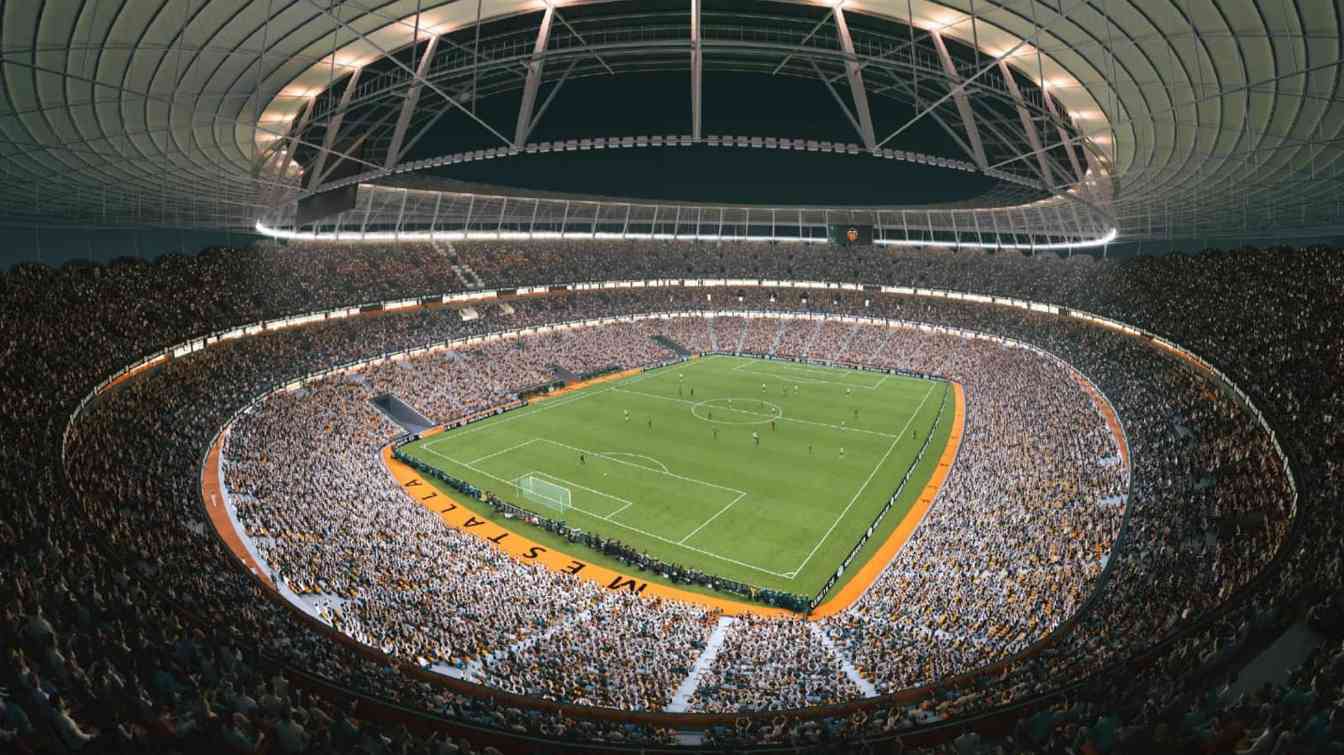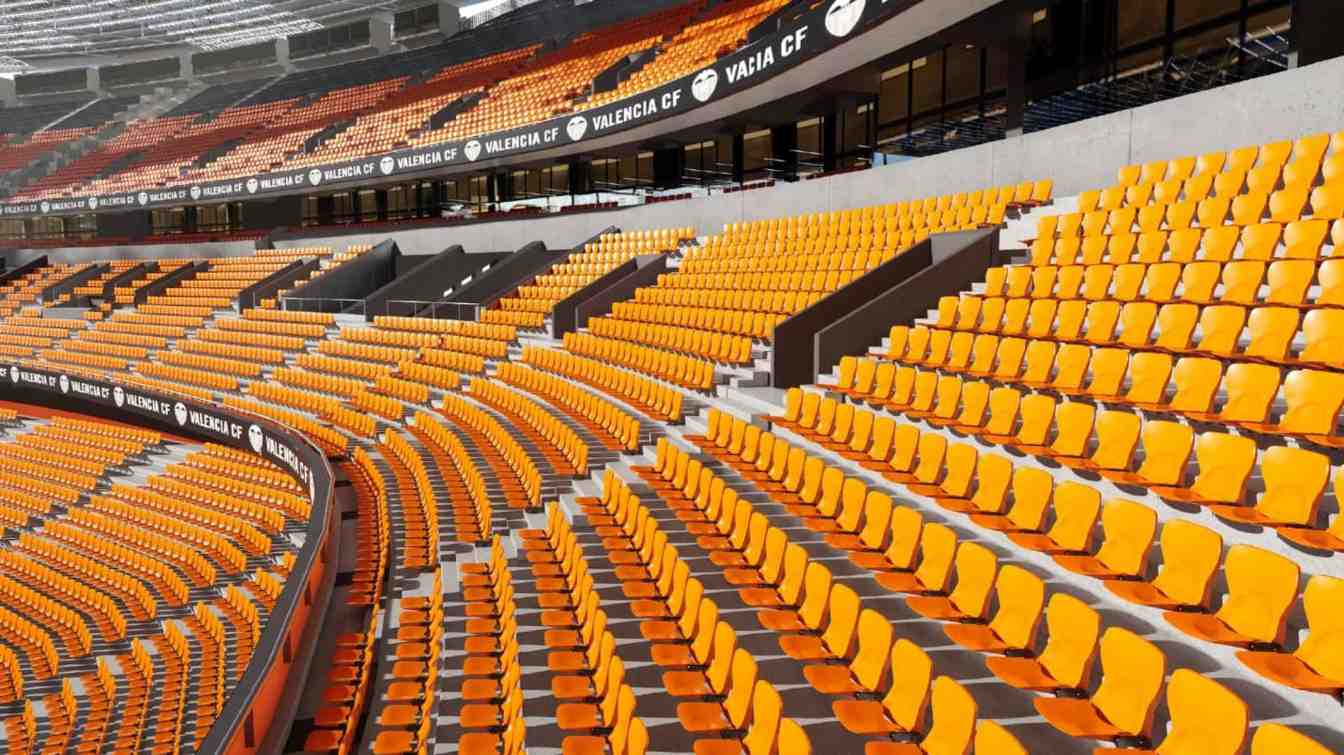Spain: 15 years of shame, World Cup scandal and suspicions - Nou Mestalla in a nutshell
source: El Pais, GolDigital, SuperDeporte; author: Miguel Ciołczyk Garcia
 Sunday marked 15 years since the day work on the Nou Mestalla was halted. Faced with the club's announcement that they will resume, a coalition has formed that wants an audit of the investment. The Spanish federation is not hiding its impatience either. Valencia's candidature for the 2030 World Cup is shaking in its foundations.
Sunday marked 15 years since the day work on the Nou Mestalla was halted. Faced with the club's announcement that they will resume, a coalition has formed that wants an audit of the investment. The Spanish federation is not hiding its impatience either. Valencia's candidature for the 2030 World Cup is shaking in its foundations.
Advertisement
15 years of uncertainty
February 25, 2009. Club president Vicente Soriano announces a halt to work on Nou Mestalla explaining it as a lack of funds. The problem is much more serious, however, as previous president Juan Soler's plan was to cover the investment not with loans, but with club revenues and the sale of the land of today's Estadio de Mestalla. The result? A €547m debt.
After 15 years, the concrete skeleton is still...well, just a concrete skeleton, looking more like a Roman coliseum than a modern facility. Instead of the best stadium in the world
, the investment has brought economic, sporting and political problems with no end in sight. Although the intention to resume works was announced in December, politicians, fans and FIFA no longer trust the club's administration and want certainties, not declarations.
Unusual audit coalition
An attitude of distrust towards the declaration was adopted by three parties - the far-right VOX, the centre-right PP and the left-wing Compromís. They submitted a request before the city's urban planning committee for an external audit to detail the costs already incurred during the investment and the amount needed to complete it.
The request made was to force Peter Lim, the owner of Valencia CF, to guarantee this amount and commit to the dates that would be set. In return, the city, managed by PP and VOX, was to give permission for the work to resume. The administration is keen to resume work to settle the ongoing dispute and be able to host the 2030 World Cup at home.
RFEF presses on, Peter Lim refuses
At the same time, the Spanish Football Federation (RFEF) has tried to force the same thing on the Singaporean businessman. The federation knows that not awarding the hosting of the 2030 World Cup to Spain's third largest city sounds like a joke, but it will look even worse if it designates a stadium that will not be built.
Peter Lim, however, has refused to sign a protocol that would allow Valencia to join the ranks of World Cup hosts, at least until the audit is completed. The reason, of course, is the inability to commit to having the Nou Mestalla finished by 2029.
The end of the World Cup dream?
As a result of these decisions, Valencia's chances of becoming a tournament host city are shrinking, as the audit is likely to take at least a few months. In contrast, there is no shortage of cities eager to take the place of the Mediterranean metropolis.
On Friday February 23, the allotted time for a decision passed. Zaragoza, for example, signed the protocol, pledging to bring the venue into line with FIFA's requirements. Although politicians are trying to get the city to host the tournament, FIFA would have to delay its decision at the request of the RFEF. What plays in Valencia's favour is the fact that not everyone submitted their documents by the deadline. However, the situation is still far from ideal and the battle to unblock the construction will continue until the last minute.
Astronomical differences in paperwork raise suspicions
The resumption of work was supposed to enable modifications to the 2022 facility. The next, significantly slimmed-down version of the Nou Mestalla was to be a low-cost
stadium, where the amount per seat would not exceed €5,000, but this would be at the expense of appearance, fan comfort and leaving parts of the stadium virtually untouched. The project was hoping for favour from the new city administration.
However, the numbers in the paperwork differ. As noted by former club vice-president Miguel Zorío, president Lay Hoon Chan said in December that around €160-170 million would be needed to complete the stadium, and around €170-180 million had already been invested in the facility. Meanwhile, documents submitted by architect Mark Fenwick show that only... €77.8 million has been invested in the stadium so far.
Where did the €100 million go? It is not known. Miguel Zorío noted that these figures indicate a possible fiscal crime by the club's administration and demanded that an audit investigate not only the amount of money needed to complete the facility, but also how much and on what exactly the money was spent.
Will Lim sell Valencia?
Nine years and no progress. This is how Peter Lim's era as club owner can be summed up. Fans are tired and no longer believe the promises of Lim or his administration. Many want to stay at the old
Mestalla and demand an upgrade. Others would like a move but do not believe it will happen with a Singaporean businessman at the helm.
Hopes were revived by news of buyout offers for the club, but these were to be rejected. One of these was made indirectly by Miguel Zorío himself. Libertad VCF, the association of socios and supporters, has decided to increase pressure on Peter Lim to sell the club. A demonstration against Lim will be held outside the stadium on March 2 (Saturday) before the game against Real Madrid.
Keep hope alive, but the Singaporean has shown over the years that he is immune to criticism, especially from fans. It will take more than political and fans’ pressure to get him off the captain's bridge, but above all a good offer. In the meantime, time is running out and the chances of it being named as one of Spain's 10 stadiums for the 2030 World Cup are dropping with each passing day.
Advertisement
 StadiumDB
StadiumDB
 ©
©  ©
©  ©
©  ©
©